Hypnotised by brands? Learn how you could be saving money
23 April 2018
We all know that branded items cost more than non-branded, but how much could you really be saving? Following National Student Money Week 2018, UCL's Student Funding Advisers have investigated - and here's what they found.
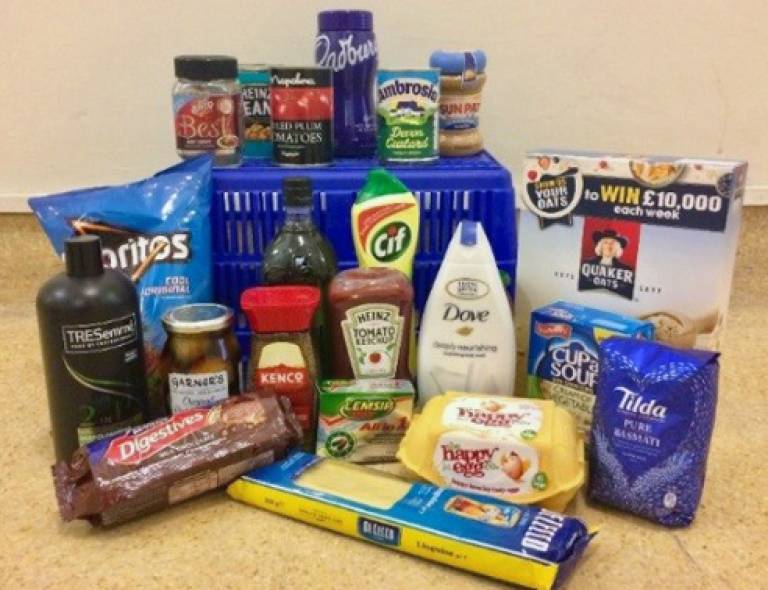
Tricks of the trade
The "battle of the brands" for our hard-earned cash can be seen nowhere more obviously than in the aisles of your local supermarket. All of the major supermarket chains invest heavily in trying to get us to spend more money, and one of the ways they do this is by using brands to change the way we see their products. Products as humdrum as biscuits and rice are separated into different categories, loaded language giving us the impression that some are 'luxury' whilst others are just 'basic'.
However, just because something costs more and comes in an attractive package doesn't mean it is always better in quality.
Often, more 'luxurious' packaging will cover a product that is, if not the same, then no worse in than it's cheaper and more simply packaged neighbours. In fact, often different brands may well be made in the same factory, by the same people.
Porridge prices: an investigation
Most supermarkets have 4 brand levels:
- Value - Names like 'basic' or 'savers' imply products that are cut back to the bones.
- Own Brand - Often presented as the supermarket's take on a manufacturer's brand.
- Branded - Products like McVitie's Jaffa Cakes or Kellogg's cereal.
- Premium - Words like 'finest' or 'extra special' imply it's a treat.
By looking at a humble 1kg bag of porridge we can see these brands and their pricing differences in action (accurate at time of writing):
| Value: | Own Brand: | Branded: | Premium: |
| Tesco Everyday Value Porridge Oats | Tesco Scottish Porridge Oats | Quaker Traditional Rolled Oats | Tesco Finest Scottish Porridge Oats |
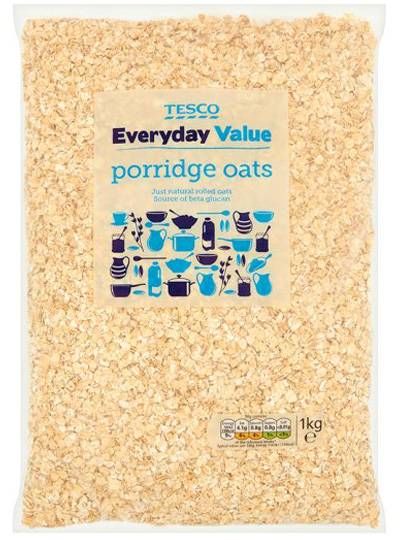 |
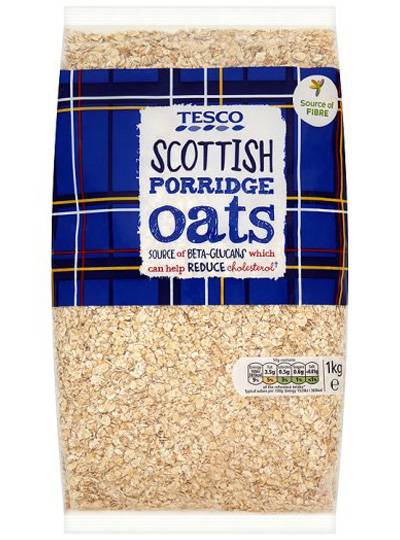 |
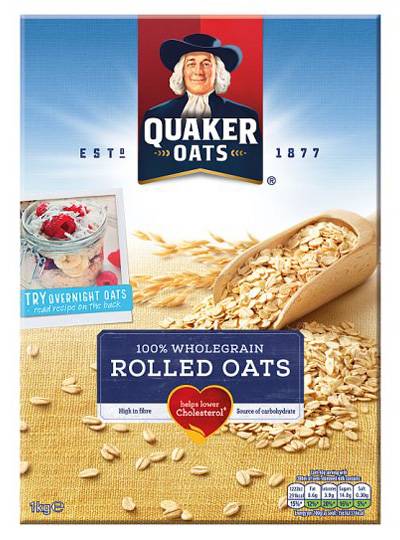 |
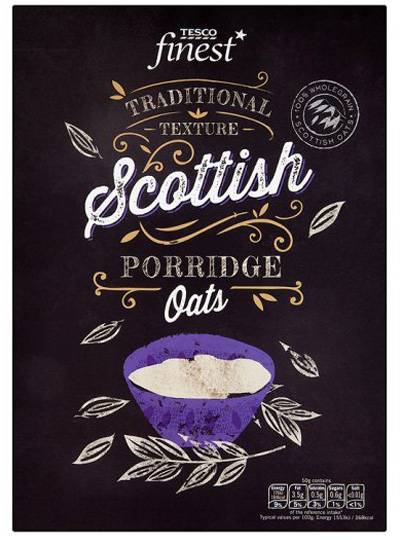 |
|
Price: £0.75 / 1kg £0.07 / 100g |
Price: £1.10 / 1kg £0.11 / 100g |
Price: £2.00 / 1kg £0.20 / 100g |
Price: £1.65 / 700g (= £2.20 / 1kg) £0.22 / 100g |
Two things to note here: Not only is the premium brand 3x more expensive per gram than the value brand, but in an attempt to disguise this, the premium brand porridge is sold in a smaller bag. This means that you may pick the premium pack as it appears to be cheaper than branded, but you end up paying more for the porridge gram for gram.
Paying more, getting less
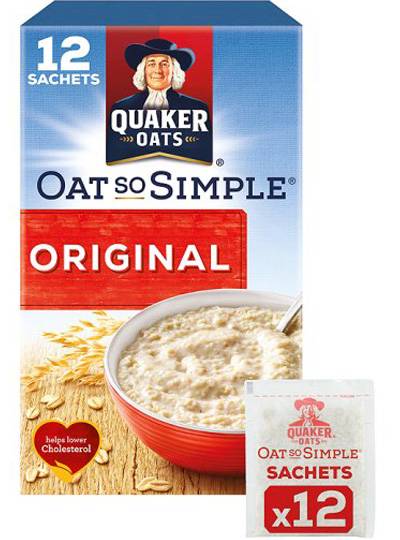
This 'smaller amounts for the same or more money' trick is one that many brands pull, meaning it's easy to accidentally end up paying more for less. This is demonstrated nowhere more brazenly in the porridge world than in Quaker's 'Oat So Simple' range.
These porridge oats are sold in 12x 27g sachets, meaning for your £2.45 you take home a mere 324g of porridge. Not to mention a load of extra packaging.
Gram for gram, buying your porridge this way costs 10x more than the value bag. As opposed to £0.75, you are effectively paying £7.60 per 1kg of porridge when you buy this way.
Extrapolate that
Now you may be thinking…so what? Maybe I like my porridge to come in teeny weeny sachets. And anyway, what's a few pence here and there? Well the answer to that would be…pounds. And lots of them.
For National Student Money Week 2018, UCL's Student Funding Advisers bought two shopping baskets of identical items - the only difference being that one basket had only value and own brand items, and the other had branded. The difference was huge.
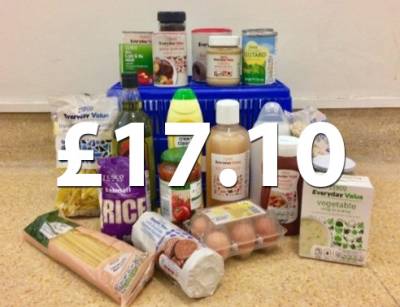 |
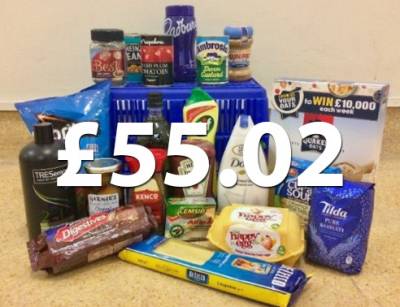 |
The value basket cost £17.10, whereas the same items in the pretty packets cost £52.02. A massive difference of £37.92.
Breaking the brand spell
The point is not to switch to value branded products if you don't like them, or compromise any moral objections that you may have (ethically sourced eggs, or less packaging, for example). However, if there is no sacrifice involved and you can find little to no difference between products, why not switch?
If you're the competitive type, Money Saving Expert Martin Lewis' 'Downshift Challenge' challenges you to swap one of everything in your basket for one brand level lower. If you can't tell the difference, stick with the cheaper one.
However you do it, take steps to break the brand spell - added up weekly, monthly and yearly the savings you make could be huge.
By Katy Foster, UCL Student Funding Adviser
 Close
Close

